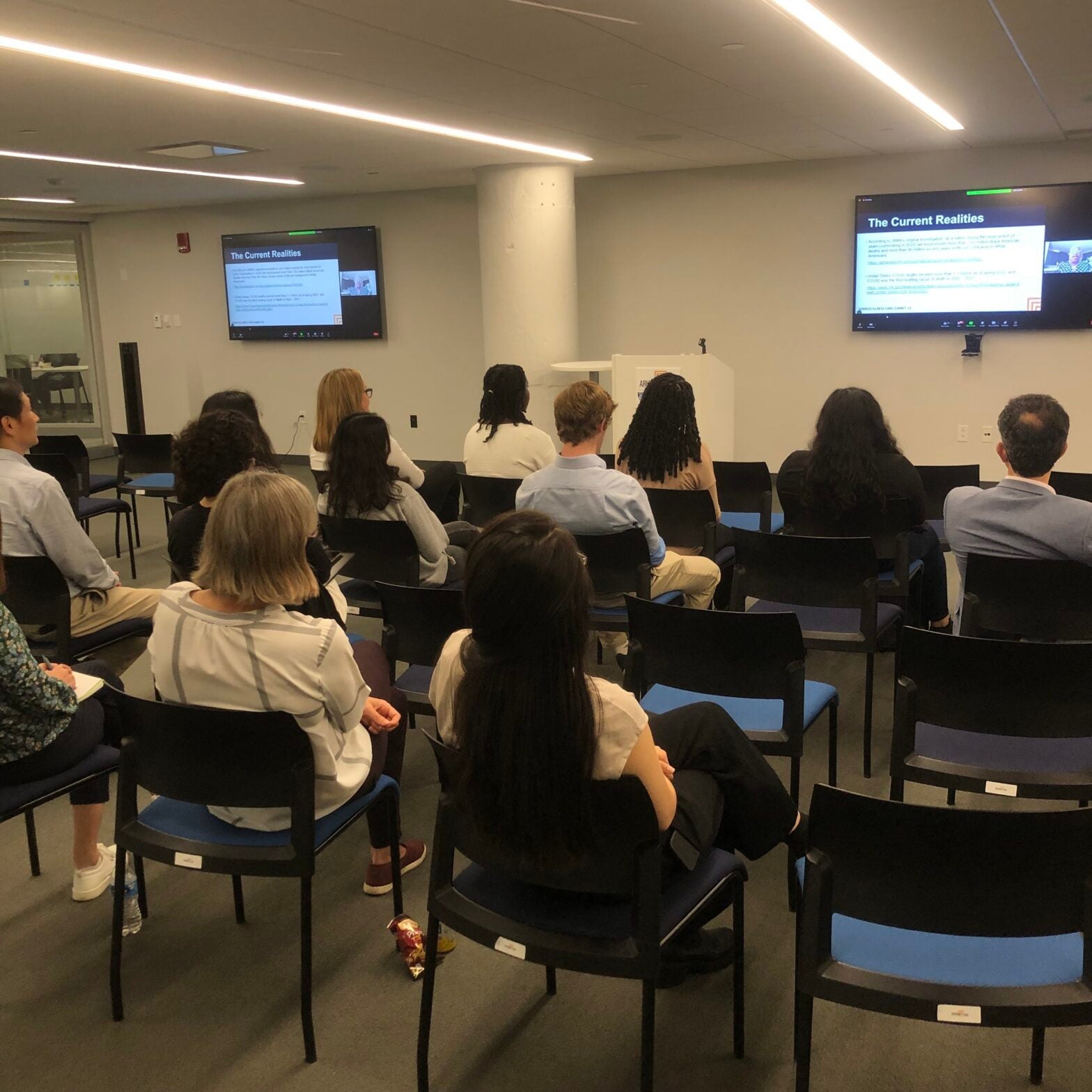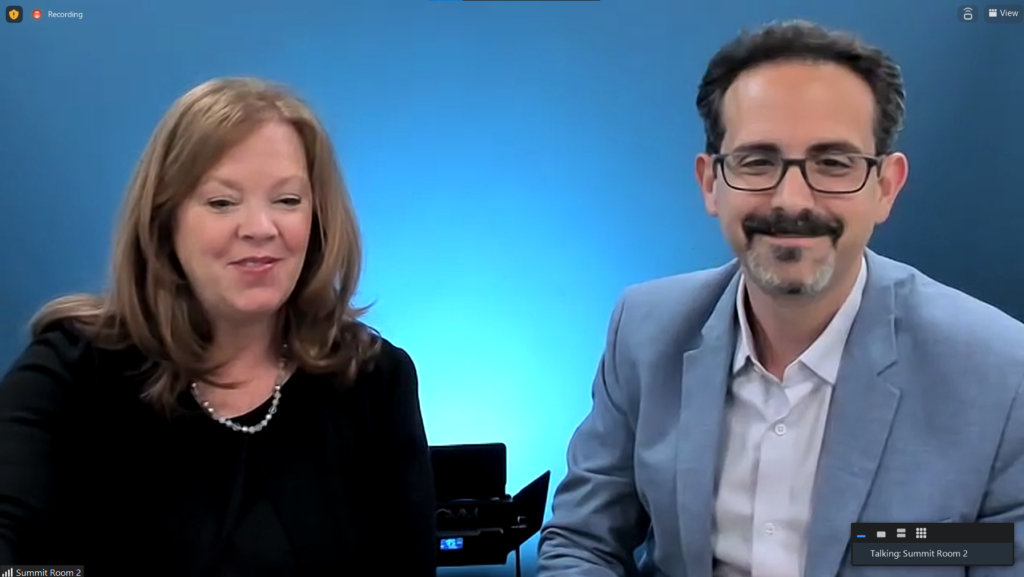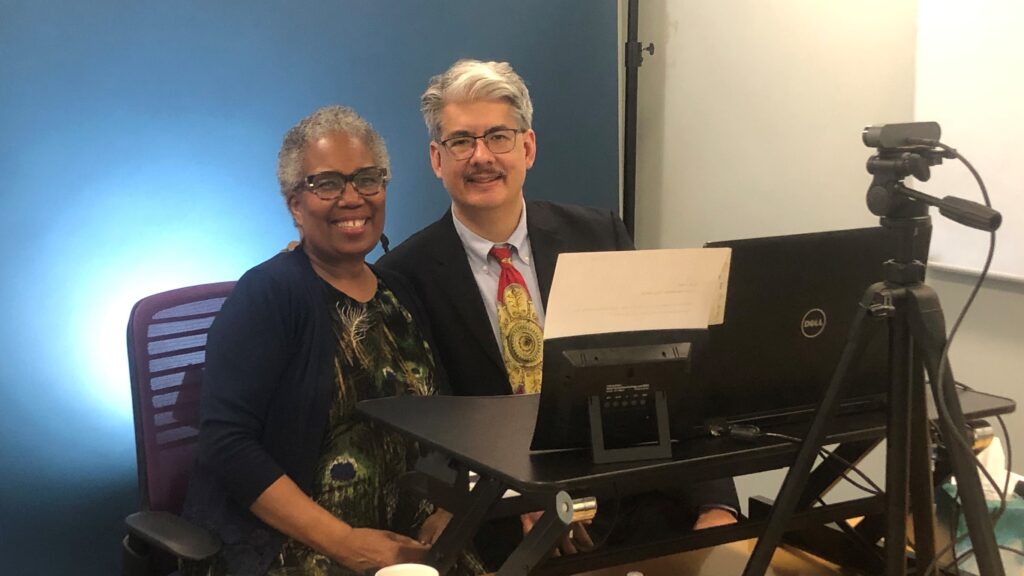On June 13th and 14th, 2023, the Serious Illness Care Program at Ariadne Labs hosted its inaugural virtual summit, “Driving Equity in Serious Illness Communication and Care.” Over two days, more than 200 attendees from around the U.S. gathered virtually to dive into new research, build community, and gain practical tools so every person with serious illness can be known and cared for on their own terms, equitably.
The Summit featured keynotes and presentations from national leaders in palliative care and health equity. Their talks provided participants with new perspectives on increasing access to high quality communication and care; fostering greater representation in research, policy, and implementation; building interprofessional teams; engaging caregivers and community; and supporting clinician well-being. Participants also connected in group discussions on actionable topics such as antiracist practices, organizational change, and the future of serious illness care and research.
“Serious illness defines an important part of our shared humanity, and yet we know that in and around our health care systems, we often fail to give it sufficient attention and justice,” said Ariadne Labs Executive Director Asaf Bitton, MD, MPH, in an opening statement. “The opportunity set here is to think about how to change that by looking through different lenses to promote compassion, understanding, and dignity for everyone facing a serious illness themselves or in their families.”
Sessions throughout the Summit emphasized the importance of ensuring that all who play a role in serious illness communication and care are given a seat at the table. From hospitals to homes, clinics to churches, serious illness communication can happen anywhere and can include a range of professionals, caregivers, and members of the community.
In a powerful keynote on the importance of community engagement, Marisette Hasan, BSN, RN, Vice President of Community Action and Policy at the Center to Transform Advanced Care (C-TAC), said, “As we engage with our community partners, we move out of our silos and are intentional in ensuring that everyone we desire to serve has a seat at the table. Unless we get involved as forces for change, change will not happen!”
The Summit’s speakers and participants reflected the diversity of stakeholders involved in serious illness care. Speakers included clinicians, nurses, social workers, patients and caregivers, faith leaders, and community advocates. 62% of attendees were non-physicians, 31 were from health systems serving underserved populations and/or geographies, and 11 were awarded financial hardship scholarships. The Summit’s virtual format encouraged this interprofessional training and teamwork by removing barriers to access such as time, cost, and travel.
Fostering interprofessionalism opens the door to access, welcomes new ideas and input, and encourages engagement across the continuum of care patients experience. When these professionals are able to receive training and work in teams, they can effectively reach patients where they are, which is key to advancing equitable care.
“The research presented here represents just some of the cutting edge: culture change insights, adapting the guide for different populations, race dialogue tools, clinician well-being, integrating caregivers – all with innovative approaches,” said Namita Seth Mohta, MD, Hospitalist at Brigham and Women’s Hospital and NEJM Catalyst Executive Editor in closing remarks during the Summit.
In addition to sharing cutting-edge ideas, the Summit gave participants practical tools and guidance to put these concepts into practice. Over the past few years, the Serious Illness Care Program team has invested time in exploring strategies to bring our training and tools to a broader, more diverse audience. Drawing on learning from those implementing the program and other partners in the serious illness community, the team has developed new resources that were shared with Summit participants.
- Digital Implementation Resources and Avatar-Based Simulation Training. The Serious Illness Care Program released a suite of digital implementation resources along with an hour-long, avatar-based simulation training to teach clinicians how to use the Serious Illness Conversation Guide. These resources significantly lower the time and cost barriers for health systems interested in implementing the program. Summit participants received early access to the tools to support implementation of the program.
- Language Updates to the Foundational Serious Illness Conversation Guide. Ten years after its release, the language of the foundational Serious Illness Conversation Guide has been updated to be more equitable and accessible to all. The revisions are the result of rigorous research and testing with clinicians and patients, including a partnership with the Patient Advocacy Foundation.
The team also shared their work with The Conversation Project to develop the What Matters to Me Workbook to help prepare patients and caregivers for serious illness conversations and shared an early prototype of a Race Dialogue tool to support clinicians in discussing race and its effects on health care.
“This Summit represents multiple years of work to research, design, and test resources that will help make serious illness communication and care more accessible to more people across a variety of contexts and settings,” said Stacey Downey, Associate Director for Program Management of the Serious Illness Care Program. “We’re excited to see these resources making an impact in our community and are energized by the commitment of all of our participants to make serious illness communication more equitable for all.”





